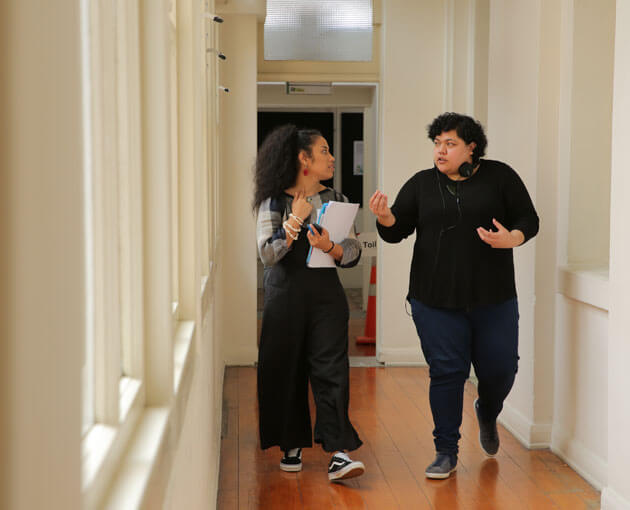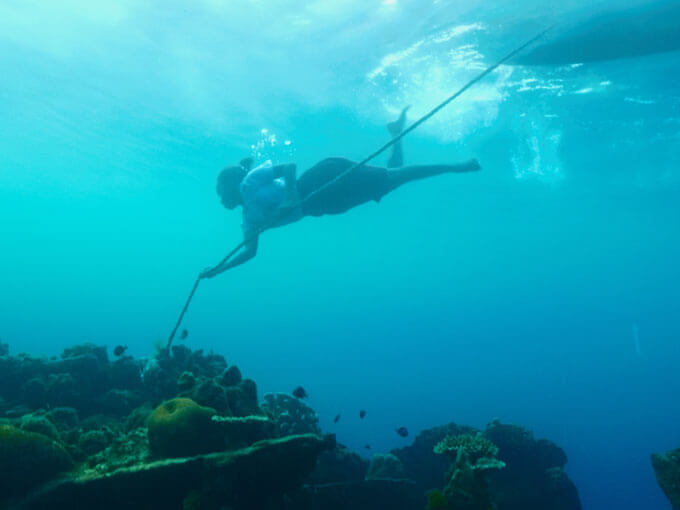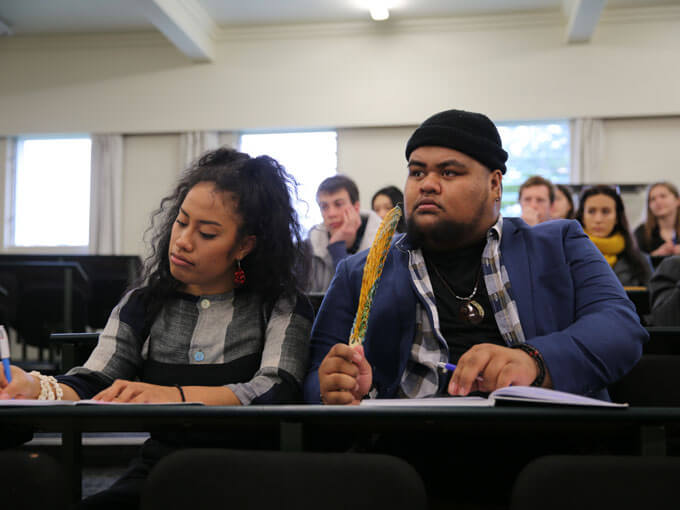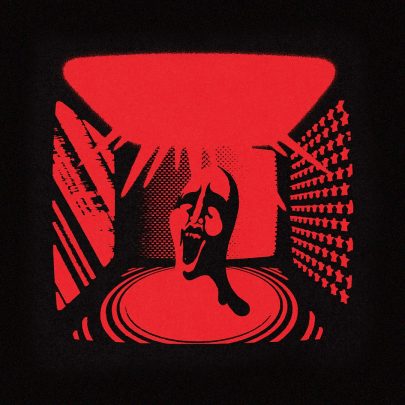Apr 5, 2019 Film & TV
Metro spoke with Amberley Jo Aumua, one of the nine directors of the newly released film Vai. She talks to us about making her first feature film, telling Pasifika stories, and debuting Vai in Berlin.
Read Metro‘s review of Vai, ?which opened on April 4, here.
Amberley Jo Aumua – at 23, the youngest of the nine directors involved with Vai – tells me from the get-go she’s shy, but there’s a decisiveness to her words that I imagine serves her well on the director’s chair. Aumua pauses significantly after I ask each question, as if she’s running through the scenarios of each potential answer in her head – how will I react, how could I spin this, what will I ask next?
The answer, once it comes, always sounds considered. “I think in film,” she says. That’s not surprising at all – while still at university, her first short film, Waiting, won the Jury Prize for Best Film at the New Zealand International Film Festival and has screened at 20 others.
Her new project, Vai, is a portmanteau film made up of eight vignettes, each directed by a different Pacific woman (or, in one case, two women). It follows the character of Vai through different ages, from 7 to 80, filmed in seven Pacific nations – Fiji, Samoa, Solomon Islands, Cook Islands, Tonga, Niue and Aotearoa.
After being chosen to direct a vignette, Aumua met the rest of the Vai girls at a retreat in Waiheke, the first time most of them were meeting. They adhered to a strict schedule, but things happened organically. “We started talking about ourselves and what piece we wanted to write to and then shaping her world within that. We were very aware that we had to not think too much of someone else’s, otherwise you’re not truthfully writing to yourself or what you want to speak to.

“The whole thing just makes me a bit teary-eyed – of how we all travelled here, have all travelled for better lives, and I know that we’re sorta in the same waka, same boat.”
Curiously, Vai opened at the Berlin Film Festival. “It was massive, but overwhelming in a good way. They really wanted us there and reciprocated that – I wasn’t expecting it at all.” It later showed at South by Southwest (SXSW) and Maoriland Film Festival, and is also opening on screens around New Zealand on April 4.
Aumua’s vignette follows Vai as she wrestles with her problems at home against the rigid university system. They filmed 25 takes of the 10-minute one shot and settled on take 21. “I like that, because she is 21.” While the rest of the vignettes strongly feature the water, hers is about the lack thereof. “And I think that’s also my interpretation of what that means, of she’s not at her home. I don’t think she’s made New Zealand her home yet either at that age. I think it speaks on what happens to some people when they’re removed from their culture, and when they are in a colonised or Westernised world, and how to navigate that world. I mean, that’s something I’m still doing.” The physical spaces in this Vai’s world are reflective of that, the camera following her through narrowed corridors and claustrophobic offices.
The story was very loosely inspired by her own experiences at university, though it’s not autobiographical. “But I think it was beating me up a bit when I went to the retreat, so obviously I had to write about it. We come here thinking education will lead us to a greater path, and in some cases it is and in some cases it isn’t. For this Vai, it just isn’t right for her, and the system in places is not catered for us in that way. They’re not willing to open up, they’re not giving. I feel like I’ve had it since primary – the different levels of teachers, of the curriculum that’s in place, the teachers not being open or just doing their job and go. It was overwhelming being in that place knowing I had so much going on in my head to try and manage that together. And if I did communicate it, not being taken seriously.
“The growth that I’ve made within that small amount of time [at university] is massive. But I’m just thinking back – what if I had been supported since primary, what would that have changed?”

The structure of this film – and Waru before it – opens it up for some criticism of tokenism: the concept and funding starts with bringing female Pasifika directors and writers on board. But that’s where the importance of intention wades in, which Aumua explains was full of love. “Kerry and Kiel [the producers] – they came out with so much love for us. I think it can be perceived that it is [tokenism], but I think the difference is that Kerry is the one pushing it, so it doesn’t feel it is. You feel validated in what you do.” And there’s the undeniable joy of representation, at seeing brown faces both on the screen and behind the screen. When I ask what Aumua’s favourite movie is, she says The Five Heartbeats, the first film that showed her people of colour. “I mean, it might not be technically amazing…
“Vai is definitely encouraging, because if I had seen that, I would have known it’s possible. I think it is revolutionary for New Zealand, and I know other countries look at us, especially indigenous-wise, of what we’re doing to help them overseas.”
There is still the problem of only seeing one story on the screen, which brings out some frustration in Aumua. “I appreciate the representation of brown faces, but the stories and what it represents is not in line with what I want to do. I don’t think we have a good variety of different stories about us so people can make their own opinion… It’s just the same. It doesn’t help that [the stories] come from another brown person – it legitimises when they’re saying about us. Again, I appreciate you did this film, but let’s just on and have much more different stuff.”
Recently, the New Zealand Film Commission put out a new funding opportunity for Pasifika and Asian filmmakers to “develop stories that reflect their diverse communities and voices on screen.” Me and Aumua both agree we’re pretty excited to see what kind of stories come out from that.
“From the get go, it starts from knowing that people are out there and doing it.”






